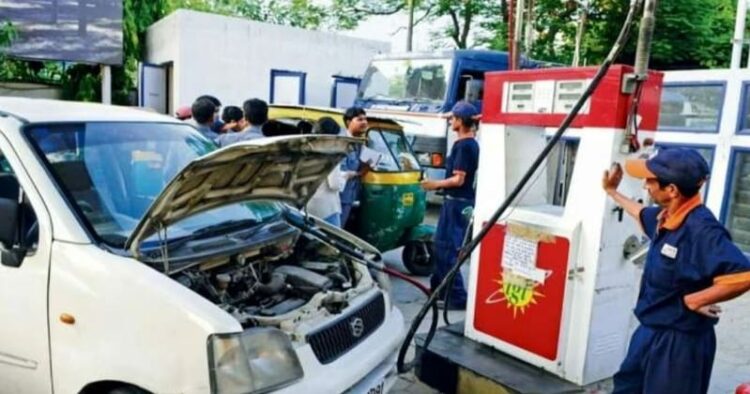In order to help the consumers, the Union Cabinet on April 6, announced a new pricing mechanism for the bulk of domestically-produced natural gas by state-run explorers.
Briefing media, Information and Broadcasting Minister Anurag Singh Thakur, said the price of natural gas is to be 10 per cent of the monthly average of Indian Crude Basket. He said that the move is to ensure stable pricing in the regime and provide adequate “protection to producers from adverse market fluctuation”. The Minister also stated that it would provide incentives for enhancing production.
The move will effectively reduce costs of Piped Natural Gas (PNG) supplied to kitchens and Compressed Natural Gas (CNG) for automobiles by up to 11 per cent from April 8.
The new formula “strikes a balance between interests of both consumers and producers”, the Minister said. India is heavily dependent on the import of energy. It imports over 85 per cent of crude oil it processes and 55 per cent of natural gas.
Sources said it is in the country’s interest to also incentivise oil and gas producers to ramp up output from the domestic fields.
“Hon’ble Prime Minister Narendra Modi has given the gift to the people on the foundation day of BJP… It is a good day and a good decision as this [decision] would benefit all – domestic consumers, industrial units and farmers,” he said.
The Minister said, “the tentative impact of price reduction in APM (administered price mechanism) gas” would help PNG and CNG consumers. If CNG is priced at Rs 92 per kg in Pune, it will be reduced to Rs 87 a kg.
Similarly, PNG will cost Rs 52 instead of Rs 57. In Mumbai, if it is Rs 54, it will become Rs 52. In Delhi, it will be reduced from Rs 53.49 to Rs 47.49.
The Cabinet’s decision is based on the recommendations of an expert panel chaired by economist Kirit Parikh, which submitted its report on November 30, 2022, proposing a floor of $4 per unit and cap of $6.5 for natural gas produced from old APM fields operated by ONGC and OIL.
According to an Oil Ministry statement, the new pricing formula is also applicable to so-called New Exploration Licensing Policy (NELP) blocks and pre-NELP blocks. However, the floor and ceiling are applicable only to gas produced by ONGC and OIL from nominated blocks.
“For the gas produced by ONGC and OIL from their nomination blocks, the Administered Price Mechanism (APM) price shall be subject to a floor and a ceiling,” the statement said.
Analysts say these reforms are a continuation of the various initiatives taken by the government to protect the interests of consumers by reducing the impact of increase in international gas prices on gas prices,
The reforms shall also help expand the consumption of natural gas and will contribute to the achievement of the target of emission reduction and net zero.
The Cabinet also approved Indian Space Policy 2023. It will aim at enhancing the role of the Department of Space as well as boosting activities of ISRO missions.
Union Minister of State in the Prime Minister’s Office, Dr Jitendra Singh, said the new space policy would ensure a larger participation of research, academia, startups and industry.
About three years back, space was opened to private participation, and now the ISRO has 150 startups.
The ‘InSpace’ was created as an entity easing public-private participation and is like a coordinator between the public and private sector.




















Comments